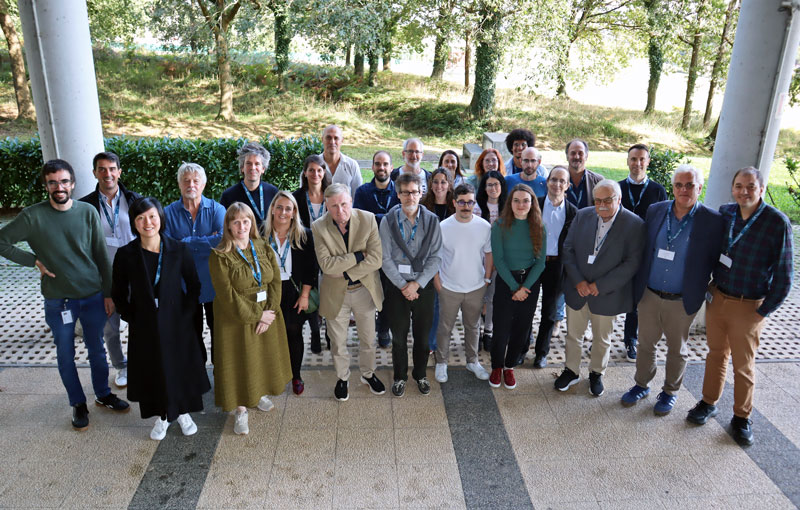
2025/10/01
Experts from around the world gather at CIC bioGUNE to advance metabolomics in personalized medicine
International teams met at CIC bioGUNE to harmonize metabolomics protocols using NMR and accelerate the translation of research into personalized medicine, including studies on Long COVID.
CIC bioGUNE, member of BRTA, hosted this week the in-person meeting of the international COVID-19 Research Network, which brought together research teams from various countries to harmonize metabolomics procedures and speed up their translation into clinical practice within the framework of personalized medicine.
Metabolomics is an emerging discipline that studies the metabolites present in living organisms in an integrated manner, providing a precise snapshot of an individual’s physiological state. Its potential lies in its ability to identify diagnostic, prognostic, and monitoring biomarkers, opening new avenues to improve the management of complex diseases. In this context, Nuclear Magnetic Resonance (NMR) has become a reference technique, as it allows the generation of reproducible metabolic profiles comparable across different laboratories.
The COVID-19 Research Network was established in April 2020 as an initiative led by Bruker, under the coordination of the Australian National Phenome Center (ANPC), directed by Professor Jeremy Nicholson. Since then, it has become an international research network bringing together multiple scientific institutions worldwide, working with fully standardized NMR procedures. This standardization allows to produce comparable, shareable, and integrable spectral data across the network, ensuring the highest quality and reproducibility.
During the meeting at CIC bioGUNE, metabolomics protocols were shared and applied to cohorts of people with Long COVID, illustrating the potential of this international collaboration. By exchanging findings and jointly validating procedures, the timeline for obtaining scientific results is accelerated, enabling faster responses than usual to major public health challenges.
The meeting in Bizkaia represents a key step in strengthening international scientific cooperation and aligning efforts in implementing metabolomics and NMR as strategic tools for the future of biomedical research, personalized medicine, and global health innovation.
The COVID-19 Research Network demonstrates how collaborative science and the use of advanced technologies can more effectively address health crises such as the coronavirus pandemic, while also opening new perspectives for other complex diseases.
About CIC bioGUNE
The Centre for Cooperative Research in Biosciences (CIC bioGUNE), member of the Basque Research & Technology Alliance (BRTA), located in the Bizkaia Technology Park, is a biomedical research organisation conducting cutting-edge research at the interface between structural, molecular and cell biology, with a particular focus on generating knowledge on the molecular bases of disease, for use in the development of new diagnostic methods and advanced therapies.
About BRTA
BRTA is an alliance of 4 collaborative research centres (CIC bioGUNE, CIC nanoGUNE, CIC biomaGUNE y CIC energiGUNE) and 13 technology centres (Azterlan, Azti, Ceit, Cidetec, Gaiker, Ideko, Ikerlan, Leartiker, Lortek, Neiker, Tecnalia, Tekniker y Vicomtech) with the main objective of developing advanced technological solutions for the Basque corporate fabric.
With the support of the Basque Government, the SPRI Group and the Provincial Councils of the three territories, the alliance seeks to promote collaboration between the research centres, strengthen the conditions to generate and transfer knowledge to companies, contributing to their competitiveness and outspreading the Basque scientific-technological capacity abroad.
BRTA has a workforce of 3,500 professionals, executes 22% of the Basque Country's R&D investment, registers an annual turnover of more than 300 million euros and generates 100 European and international patents per year.
See a large version of the first picture





